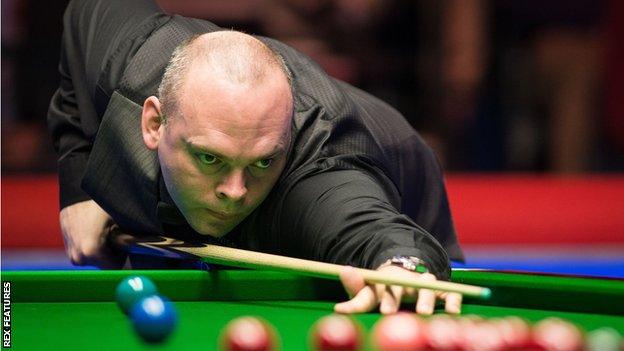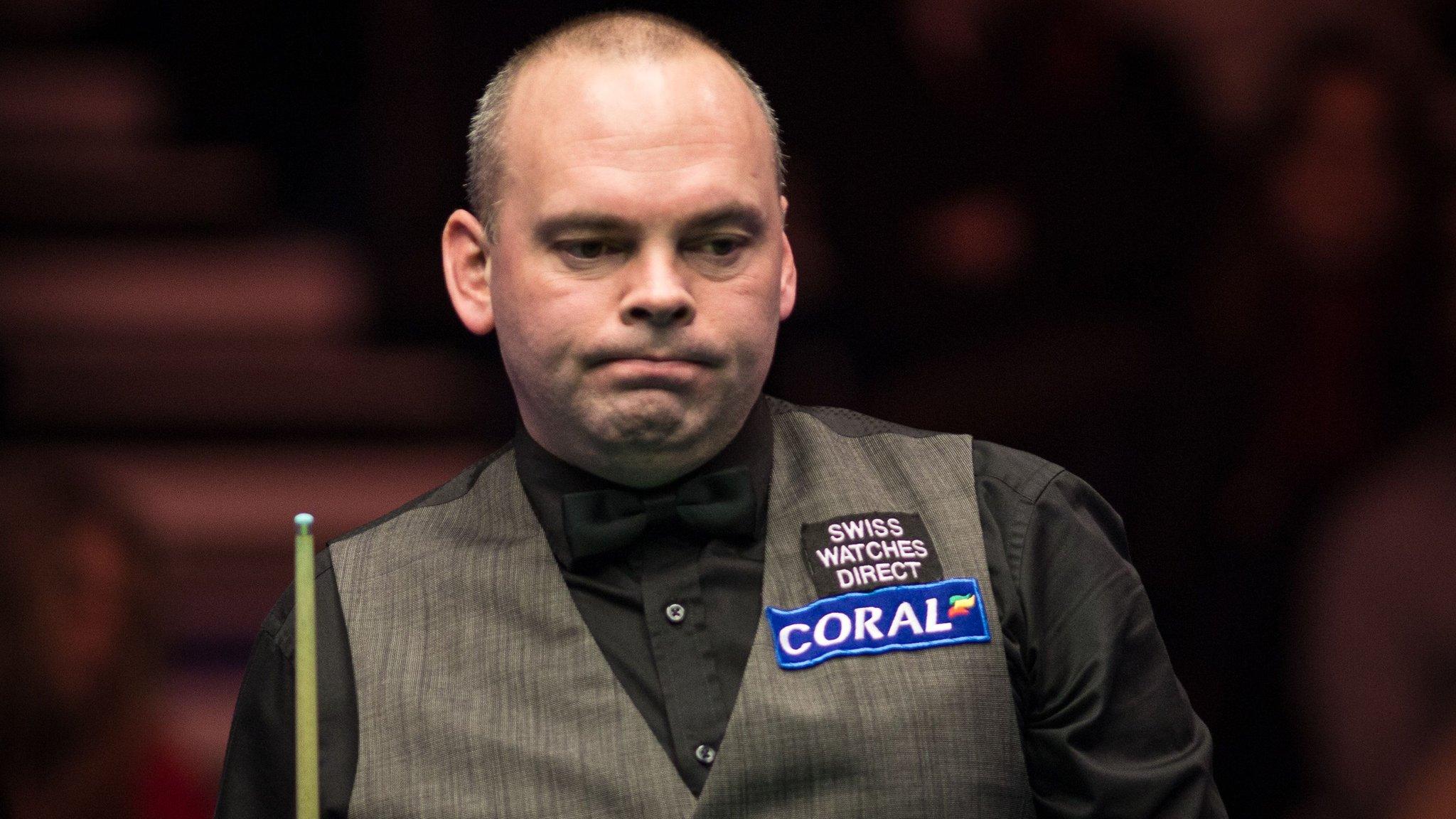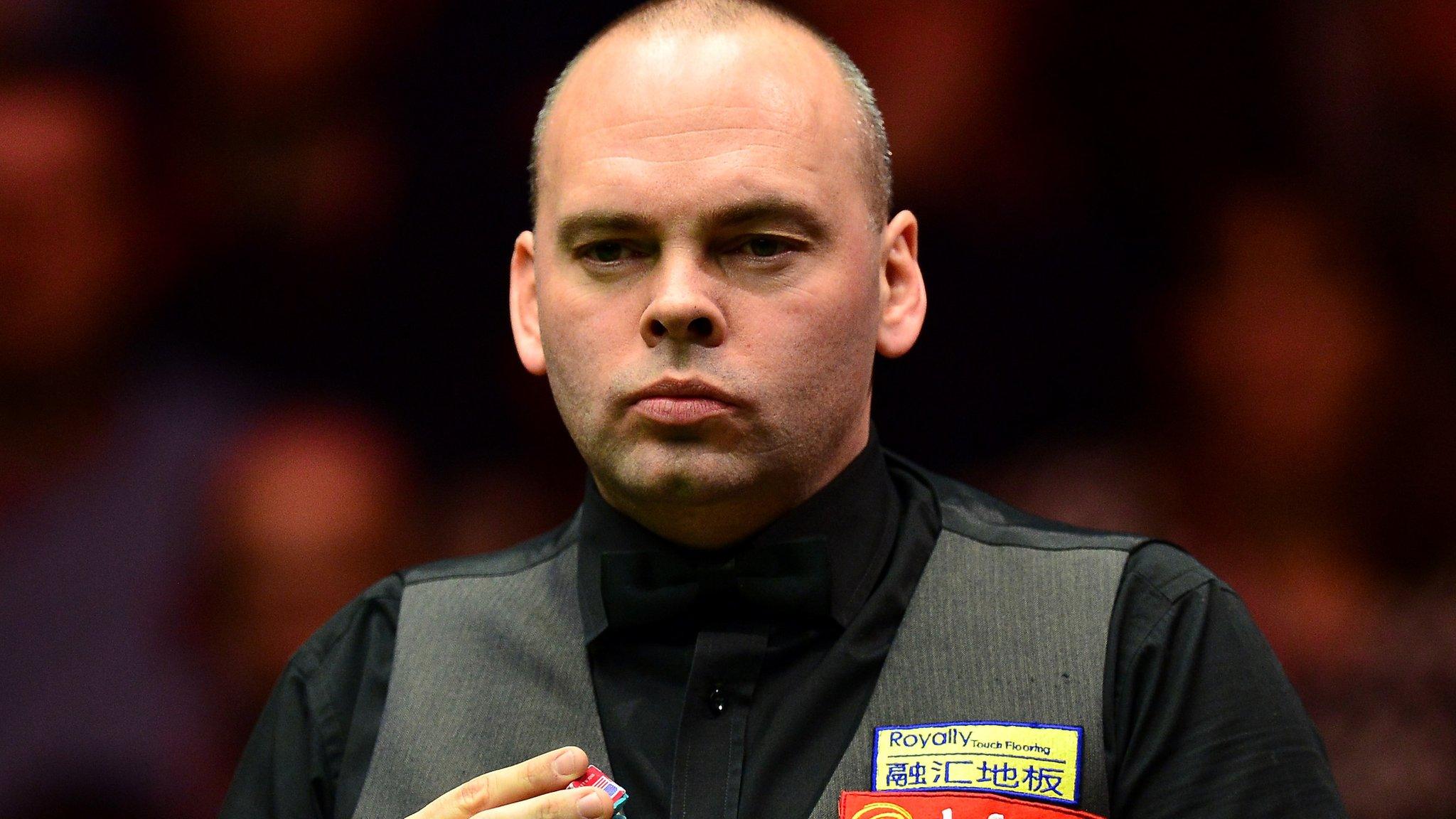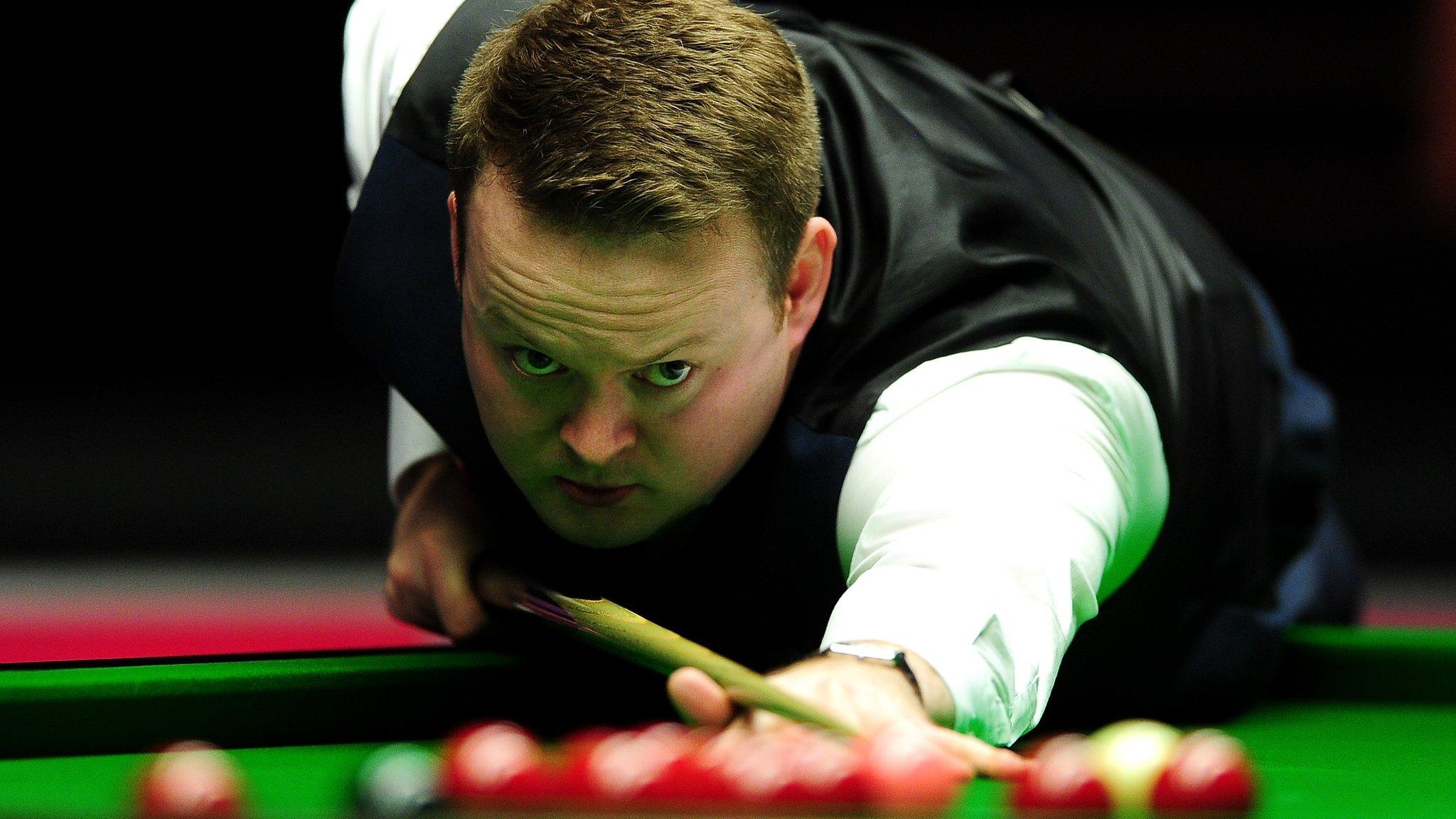Stuart Bingham: Former world champion apologises for betting breaches
- Published

Stuart Bingham beat Judd Trump in the final of last month's Welsh Open
Former world champion Stuart Bingham has apologised for breaching betting rules, but denies betting on his games.
Bingham, 41, was banned from snooker for six months after breaking World Professional Billiards and Snooker Association (WPBSA) rules.
The 2015 world champion said he was "truly sorry" and "did not attach sufficient importance to the rules".
But he said bets involving his matches were placed only by another person, with whom he shared an account.
The WPBSA said the estimated total of his betting on snooker in the past seven years is £35,771 and that he often used proxy accounts to bet so it was not possible to establish whether he won or lost.
It said there was no suggestion Bingham aimed to "influence matches or engage in any corrupt activity".
The WPBSA committee said Bingham placed bets on matches in which he was playing - 36 between 2003 and 2015 to a value of £4,636 - using his manager's account.
However, the player said: "In the absence of any direct evidence, the committee arbitrarily concluded that I was responsible for 50% of the betting on that account (including the bets on my matches).
"I categorically deny that this was the case. I have never bet on a match in which I was playing."
Archive: Bingham wins 2015 World Snooker title
Bingham says he hopes to return to the circuit next year, with half of his ban being suspended.
The suspension has ruled him out of three of the most lucrative events on the calendar - the International Championship, UK Championship and the Masters.
The world number 10 has also questioned whether enough is being done to protect players from the influence of betting companies, saying he has been "exposed to all forms of gambling since I was a teenager".
He added: "Most tournaments are sponsored by betting companies. If I was not having wagers with opponents on matches then there were gaming machines in all the clubs."
- Published24 October 2017

- Published26 October 2017

- Published1 September 2017
